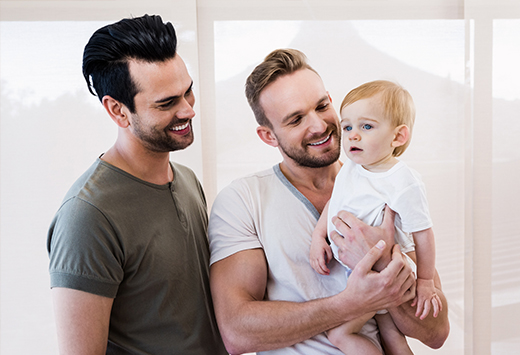Parenting is one of the most demanding and rewarding experiences we can have in our lives. However, parents who adopt a child have a wide range of joys and challenges that are quite specific. All children and parents can have similar problems to other people, but it takes a special therapist to determine if the problem is related to adoption.
Open or closed adoptions, blending with biological children, interracial adoption, and LGBT adoption are a few situations that can be explored with the help of a professional therapist. Many parents wish to start counseling right away. Others may find that they do not need to reach out to a therapist until a particular issues arises. Finding an adoption-competent therapist is crucial, and help is available by these qualified counselors in many areas.
Where to Start
An initial starting block when seeking counseling advice is the adoption agency. Most agencies already have a hearty list of therapists who have been vetted for this area of expertise. Parents can also contact their state adoption agencies by phone or online for recommendations in their local area. Child welfare services can break down counseling services by county, listing many options for both parental and adoptee support groups and therapists who specialize in the various topics that may arise during adoption.
The location of the therapist’s office and cost are usually the initial key factors. Parents can obtain a list of therapists in the area who are easiest to incorporate into their commutes and daily schedules. A simple phone call to the receptionist can determine if the counselor accepts the family’s insurance or determine the cost for non-insured families.
What to Ask a Prospective Adoptive Competent Therapist
It is important to specifically understand a counselor’s qualifications in adoption-related therapies. Asking about certifications, degrees, licenses are reasonable and responsible questions. Stating your specific problem can also help narrow down your therapy candidates. Parents can ask if the counselor has had training in dealing with specific issues such as pre-adoption trauma, searching for birth relatives, LGBT adoption, or grief-related problems. A parent can proceed with confidence, knowing a therapist has experience with a particular issue that is causing problems.
Setting, Time frame, and Expected Outcome
It is important to understand the treatment setting. Some counselors can come to a family’s home while others will only have sessions in their office. It is important to know if a parent will stay in the room with their child or if the appointment will be an individual session with the child.
A parent should understand treatment expectations and outcomes, and also the types of therapies that can be utilized before deciding on a therapist. Behavior modification and cognitive therapies are common and usually effective, but there are many others that can be beneficial to the entire family.
Commitment to a Positive Future
Anyone can have problems that arise in life, but families of foster and adoptive children can face multiple challenges unique to their situation. Therapy is a fantastic tool that can empower families towards a positive outcome. Adoption-competent therapists can guide the entire family through the therapeutic process and be the advocate needed in the pre- and post-adoption setting.




